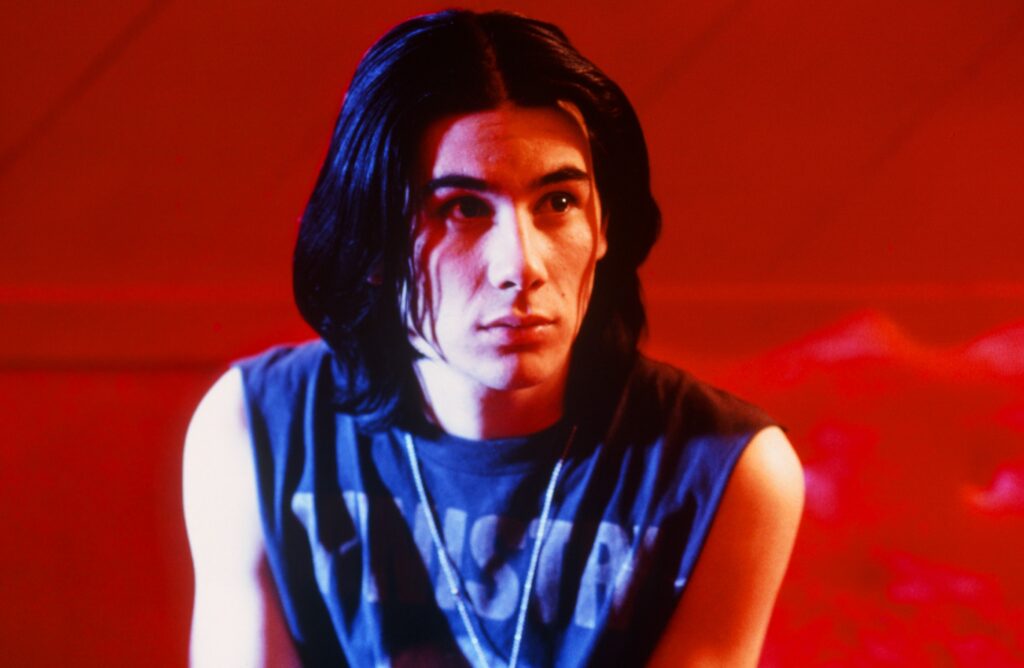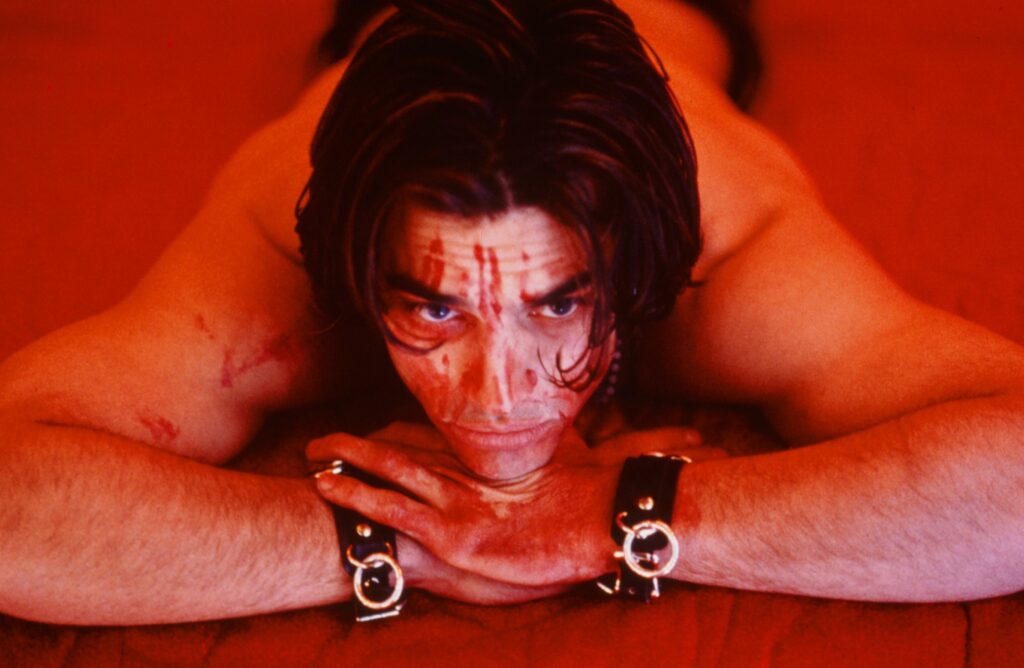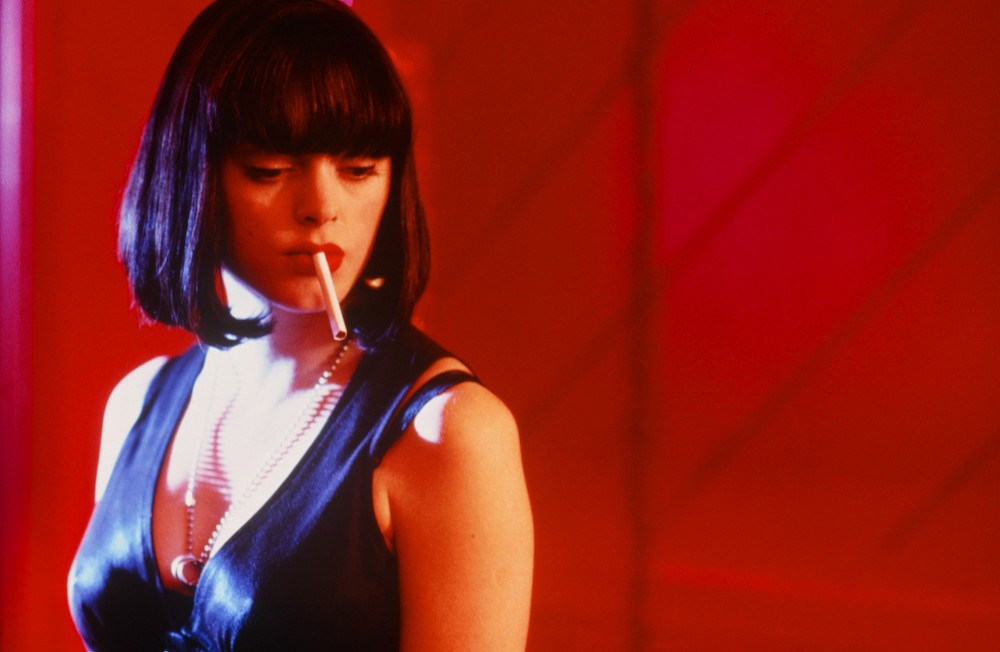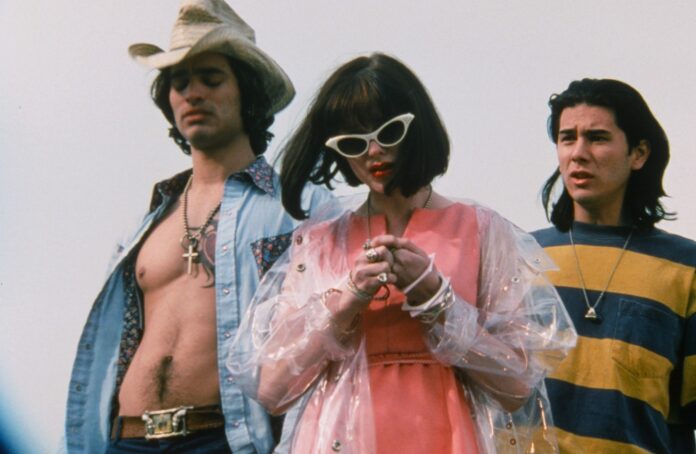1993’s Totally F***ed Up was supposed to be a one and one for its writer-director Gregg Araki. Inspired by Jean-Luc Godard’s Masculin Féminin, TFU starred James Duval as one of six queer teenagers in contemporary Los Angeles. Directing and hanging out with his young cast inspired the filmmaker to further explore the lives of adolescents living in the 1990s American hellscape.
“It sort of gave a little bit of a peek into that generation, and their concerns, and their fears, and just what they were about a little bit,” Araki says during a Zoom call with 48hills. “At that point I thought, ‘I’m going to make these three films and have Jimmy in the middle of all of them. So, I wrote The Doom Generation and Nowhere specifically for Jimmy.”

The director’s cut of The Doom Generation, the second film in the trilogy, has been newly restored by Strand Releasing in 4K with a 5.1 sound mix, and screens at the Alamo Drafthouse New Mission starting on Thu/27, with a Q&A with Araki at the Fri/28 9pm screening, and a Q&A with Araki and Duval on hand at the Sat/29 6:30 and 9:30pm screenings.
“The fact that Doom Generation has touched people, it’s like resonated with people, and the fact that it is still alive 28 years later is so humbling, and so mind boggling for us,” says Araki.
Duval plays Jordan White in the film, a sweet, soft-spoken kid, a kind of human version of Bambi who seems almost too pure and innocent for the world. (“That’s very accurate,” Araki says when the observation is made.) He’s totally devoted to Amy Blue (Rose McGowan, arresting in her first starring role), a tough-talking live wire who makes an indelible impression with her vivid red lipstick and Louise Brooks ‘do. The pair take up with Xavier Red (Jonathan Schaech), a drifter who inserts himself into their relationship. In an American full of quickie marts, drive-through fast food, and cheap motels, the three take to the road, inadvertently triggering violence wherever they go. While set in the 1990s, the degree of brutality is on par with our current era.
“There’s been a lot of talk about the violence in The Doom Generation,” Araki says. “The movie happens in a kind of nightmarish universe and there is a level of stylization and subjectivity to it, but it is definitely about being in America, and being queer, being different, being a sort of outsider in this culture and how what a dangerous place it can be. I wish the movie was a little more obsolete in that way, and that people would go, ‘What’s a neo-Nazi? We don’t know what that is.’”

Twenty-eight years on, The Doom Generation makes an impression as a kind of anarchic ride rarely seen in modern cinema. Araki, one of the pioneers of New Queer Cinema, credits being in the right place at the right time. His career started during the dawn of an exciting era of independent film production, incited by the 1989 release of Steven Soderbergh’s 1989 award-winning debut sex, lies and videotape. Perhaps more importantly, Araki came of age during a thrilling time for music.
“I was an undergraduate in college when punk, New Wave, alternative music was happening,” he says. “That was such a profound influence on me and my aesthetic and my sort of worldview, that whole DIY attitude and the idea that it was really important to not necessarily fit inside of a box. You could do your own thing. There was this idea of creative purity and the idea that you could, you know, sort of create your individual art and put it out there and hope for the best. That was all very influential on me when I was in my early twenties and figuring out who I was and what I wanted to do.”
The Doom Generation is a film that divided opinions. It is not one to which anyone who has seen it is indifferent. The late Roger Ebert loathed it so much that he included it in his compendium of bad reviews I Hated, Hated. Hated This Movie. Araki takes the criticism in stride, amused by the fact that The Doom Generation continued to live inside Ebert’s head.
“It was almost flattering to me, given the fact that this is just a $750,000 queer punk art movie,” Araki says. “The idea that it would trigger him so much that he’s put it in a book is kind of crazy to me, but I’m used to it’s sort of polarizing reaction.”

The Doom Generation wasn’t made for the likes of Roger Ebert. As Araki and Duval have toured around with the film, the pair have heard from the people for whom the film has made a difference, people who have intensely personal feelings about the movie. Some have even told them that The Doom Generation changed their lives. Araki recognizes that at least in part, the restored film is a reward for those who enthusiastically embraced his work.
“This is just a little art movie that we made back in the ’90s,” Araki says. “The audience has been so loyal and so dedicated, it just blows us away. And that’s one reason why I’m so excited and thrilled about the remaster, because you know the movie has lived all this time on the basis of like a shitty DVD copy. Very few people saw it in the theater when it was released. It’s lived this sort of cult following on the basis of a lousy print. You can’t even hear the music. It kind of horrifies me as a filmmaker.
“So, the fact that we now have this new version that is completely remastered, color timed, remixed—you can hear all the music now and I really applied my sort of 2023 standards as a filmmaker to this old movie, it’s almost like making a new movie now,” he adds. “That’s one reason I’m so thrilled about being able to do this remaster, because now there is a version of this movie for historical and cultural purposes and also for a whole new generation.”
THE DOOM GENERATION screenings begin Thu/27. Screening followed by Q&A with Gregg Araki at 9pm on Fri/28, and with James Duval and Gregg Araki at 6:30pm and 9pm, Sat/29. Alamo Drafthouse, SF. Tickets and more info here.





